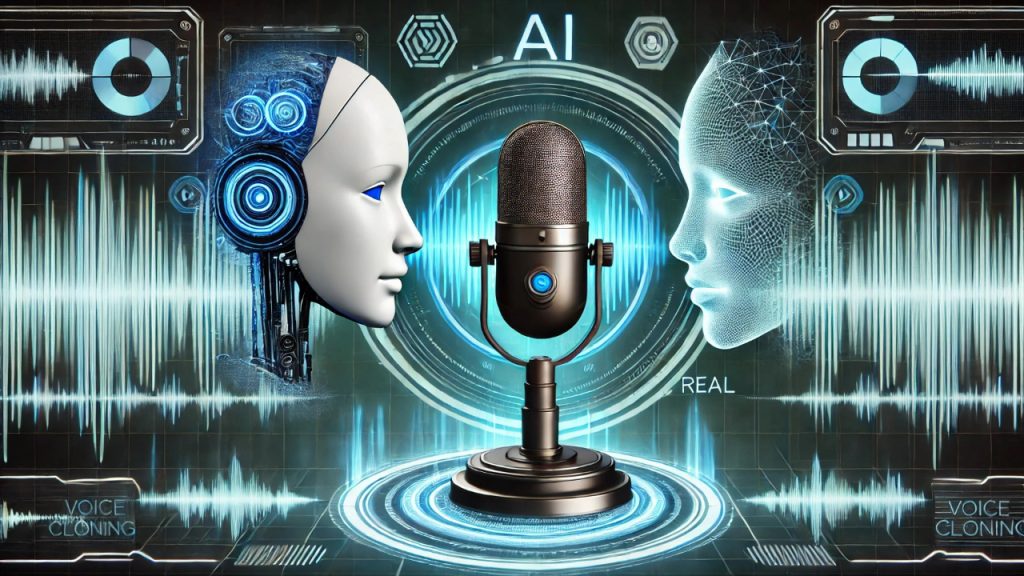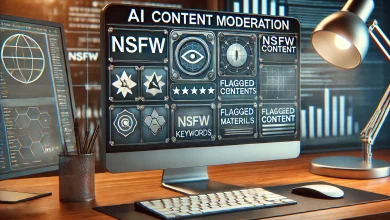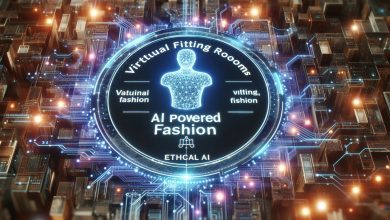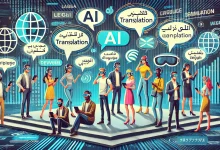How AI Transforming Voice Cloning and Its Ethical Consequences
How AI Transforming Voice Cloning and Its Ethical Consequences
Artificial Intelligence (AI) has come very far these past few years, with tremendous potential across all industries: health care, finance, entertainment, and beyond. There are many fascinating AI technologies, one of which is voice cloning. Using machine learning algorithms, AI can simulate real-life replicas of the human voice, imitating tone, pitch and even emotion. Their explanation of what they do (links below) suggests they have promising applications; but also raises serious ethical questions. If you want to know how AI is helping us clone voices then do read this article about its ethics.
What Is AI Voice Cloning?
AI voice cloning refers to using deep learning algorithms to create a synthetic version of a person’s voice. These algorithms are trained on existing voice recordings to understand speech pattern nuances and tone and pronunciation nuances. After the AI system has been trained on these recordings, it can produce speech in the cloned person’s voice that the person may never have spoken before.
The way that voice cloning works is through something known as a “text-to-speech” (TTS) synthesizer, or just TTS. The system is trained on hundreds of thousands of hours of voice data that teaches it the tonal distinctions that make each voice distinct. Other systems can even go the extra mile with the cloned voice to simulate emotions or variation in tone so the output sounds more fluid and human.
Voice-cloning technology is progressing fast and has already been implemented across a variety of industries such as customer service, entertainment, accessibility, and even security.
Applications of AI Voice Cloning
But although AI voice cloning might sound like something from the pages of science fiction, it’s actually being used in real-world applications.
Entertainment and Media
In an age where voice cloning is more common in the entertainment field. For instance, voice actors who can no longer do the job or who have died can have their voice replicated for new projects. Not only can AI replicate high-quality voices, making it nearly impossible for an audience to tell the difference, it can also be used by filmmakers and animators to resurrect classic characters — or even actors.
Moreover, Voice Cloning is also making strides in the video game industry where developers can create realistic characters that replicate the inflection and tone of a real human voice. This can help to make the game world more immersive and provide the environment for a dynamic and engaging environment.
Customer Service
Voice cloning powered by AI is also starting to enter the customer service industry. With the use of virtual assistants that sound so realistic, these companies can provide their customers with a more personalized experience. These AI assistants converse and answer questions as if they were human customer service reps, reducing company costs and improving efficiency.
Voice cloning can also eliminate the waste of communicating with the customers speaking in different languages by making the process a bit more natural and engaging. As an illustration, a voice assistant that has been trained to respond in multiple languages, would allow companies to provide support to a worldwide clientele with minimal effort.
Accessibility and Assistance
Voice cloning has great implications for those with speech disabilities. AI speech cloning should be a realistic way to restore their own personal voice back for people who would lose their voice through some medical conditions like ALS (amyotrophic lateral sclerosis) or stroke. For an individual who has lost the ability to speak, a trained AI can reproduce their voice based on recordings of the sound of their voice. This can help give a sense of identity as well as establishing comfort to those who can no longer communicate verbally.
Security and Authentication
Voice cloning technology is being tested as a potential security system as well. Voice recognition is commonly used as a form of biometrics, where the systems analyze the unique features of an individual’s voice to confirm their identity. But as voice cloning techniques grow more sophisticated, they could well be used as a means of undermining those security systems, leading to serious concerns about the safety of voice-based identifying methods.
Ethical Issues With AI Voice Cloning
The use cases of AI voice cloning is exciting but this technology has its own ethical concerns to contend with.
Fraud and Misuse
The potential for misuse is one of the most significant ethical concerns surrounding AI voice cloning. The technology can enable anyone with the necessary tools to impersonate a person’s voice and abuse it. For instance by using voice imitation, creating false voices or impersonating individual for fraudulent use. Criminals could use cloned voices to dupe people into transferring money, giving sensitive information or partaking in other fraud.
In one widely discussed incident, cybercriminals took advantage of voice cloning to imitate a chief executive’s voice and convince an employee at a company to wire a large outlay of cash. This kind of “voice phishing” is just one use case that shows how AI voice cloning can be weaponized for fraud.
Invasion of Privacy
Voice cloning also opens up questions about privacy, especially when it comes to using someone else’s voice without their permission. Many are unaware their voices are being cloned or added to AI, or they have not given permission for that. This could make life unbearable for someone whose voice is easily recognized, such as for a public figure, so being able to clone their voice without them knowing it is a cariage of privacy.
Also, users might not get control over their voice data collection or how it gets used or shared, which leads to increased privacy issues. The audio cloning technology, however, raises vocal privacy concerns that genuinely do call for the needs for we need stronger protections and guardrails to keep people voices from being used without their consent.
Impact on Employment
There could be ramifications for customer service and entertainment workers and others if AI voice cloning technology advances. AI-generated voices, for example, could take the place of voice actors, making some people who depend on voice acting for their source of income obsolete. Likewise, the proliferation of AI-powered virtual assistants may also lessen the need for human customer service representatives, generating concerns over job displacement in those industries.
Ethics Considerations in Media & Content Creation
The ability to generate realistic voice copies also opens up questions about the ethics of media creation. That would be used to manipulate audio or to produce false news items, deepfake video and other misleading content, using AI-generated voices. While there is already a problem in the world where fake news exists everywhere, being able to make highly convincing fake voices will make it even more difficult to combat fake news.
But the ability to create real sounding but fake audio content also calls into question the nature of authenticity in media. For instance, if we can easily replicate an audio recording using AI, can we trust that an audio recording in and of itself is authentic? These queries underscore the ethical quandaries that AI voice cloning presents, particularly as the technology becomes easier to use.
Ways to Mitigate Ethical Challenges of Voice Cloning
Such measures should also be taken to combat all those on AI voice cloning and the ethical dilemma that comes with it, as well.
Regulation and Oversight
AI Voice Cloningnn They can create laws on the use of AI voice cloning technology in order to regulate. These laws can help protect the collection of voice data at an ethical level — requiring explicit consent as well as the ability for individuals to control how their voices are used. Regulation must also deal with potential as well as actual malicious actors and actions; individuals and organizations need to be held accountable for fraudulent or malicious uses of voice cloning.
Transparency and Consent
The key to ethical use of voice cloning is transparency and consent. Companies that gather voice data for use in training A.I. should be transparent about how the data will be used and offer people an opportunity to opt out. This will facilitate to prevent abuses of voice cloning technology without knowledge or consent of the voice donor.
Education and Awareness
Newer technologies make it easy to create audio content that can sound just like someone else. By teaching the ethical issues surrounding voice cloning, individuals can better protect themselves from fraud and deception.
Conclusion
AI voice cloning is a novel technology with far-reaching potentials including vast applicabilities in various sectors such as entertainment, customer service, accessibility and many more. Its potential comes in conjunction with some serious ethical challenges, first and foremost, fraud, privacy, and the potential misuse of the evolution of this technology. In a nutshell, to take full advantage of all voice cloning has to offer while avoiding its potential pitfalls, we need to prioritize transparency, consent and comprehensive regulation. With rapid advancements in technology, the focus must be on responsible use to harness the potential of AI voice cloning for the betterment of society.







